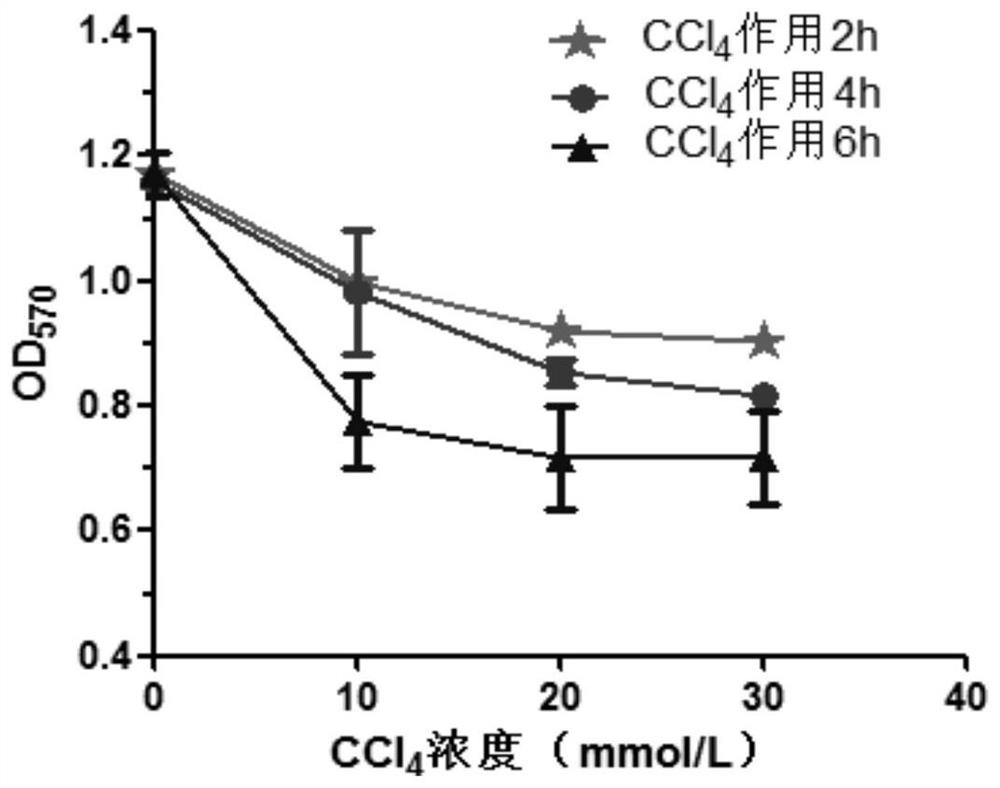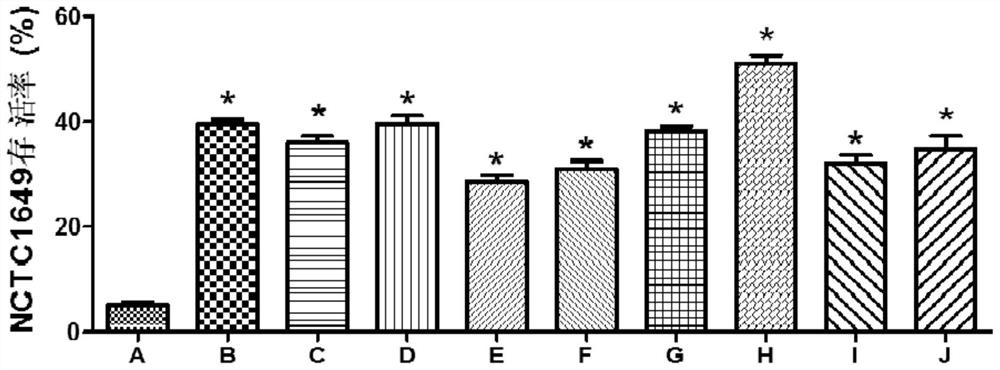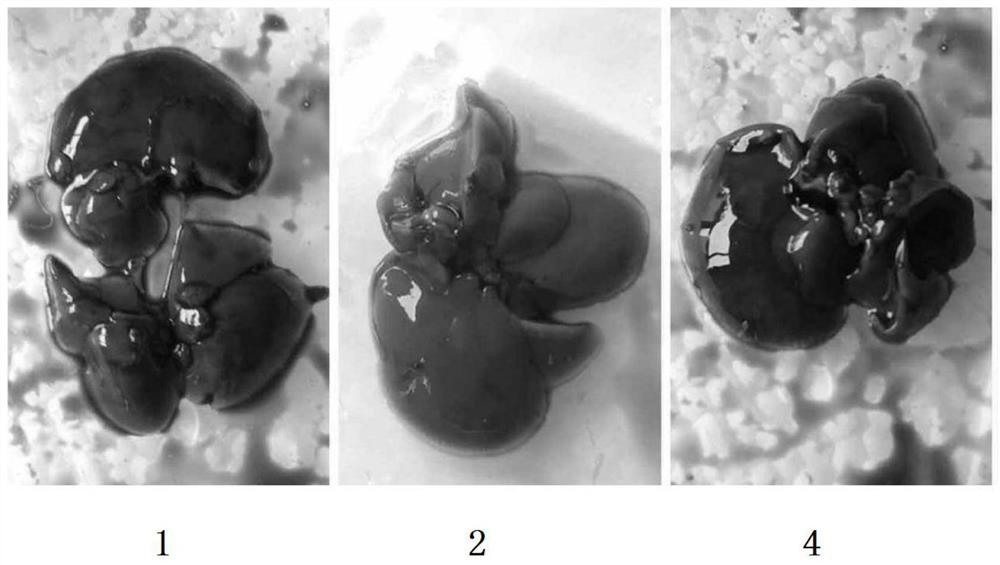Extracellular metabolites of highly active Lactobacillus plantarum tomato juice medium and its preparation method and application
A technology of tomato juice medium and extracellular metabolites is applied in the application field of microbial metabolites, and can solve the problems of unsatisfactory antioxidant effect, reduced bacterial activity, and unsuitability for human consumption.
- Summary
- Abstract
- Description
- Claims
- Application Information
AI Technical Summary
Problems solved by technology
Method used
Image
Examples
Embodiment 1
[0059] The preparation of the tomato juice medium in this example is as follows: peel 500g of tomatoes, add 1000ml of water to conditioner to extract the juice, filter through 160 mesh to obtain fresh tomato juice, add 2% glucose, 1% soybean protein, and 0.5% yeast extract according to the following ratio Juice, sterilized at 115°C for 20 minutes before use.
[0060] The extracellular metabolites of Lactobacillus plantarum tomato juice medium in the present embodiment are prepared by the method comprising the following steps:
[0061] 1) The number of bacteria obtained with tomato juice medium is 10 8 The Lactobacillus plantarum suspension per ml was inoculated into the tomato juice culture with an inoculum of 1% and cultivated at 42°C for 20 hours to obtain a Lactobacillus plantarum seed solution;
[0062] 2) Inoculate the Lactobacillus plantarum seed solution in step 1) into the tomato juice medium at 42°C for 20 hours at an inoculum size of 1%, and place it in a refrigerat...
Embodiment 2
[0065] The preparation of the tomato juice medium in this example is as follows: peel 500g of tomato, add 1000ml of water to extract the juice from a conditioner, filter through 160 mesh to obtain fresh tomato juice, add 1.5% glucose, 1.5% soybean protein, and 0.7% yeast extract according to the following ratio Juice, sterilized at 115°C for 20 minutes before use.
[0066] The extracellular metabolites of Lactobacillus plantarum tomato juice medium in the present embodiment are prepared by the method comprising the following steps:
[0067] 1) The number of bacteria obtained with tomato juice medium is 10 7 The Lactobacillus plantarum suspension per ml was inoculated into the tomato juice culture with an inoculum of 1% and cultivated at 42°C for 18 hours to obtain a Lactobacillus plantarum seed liquid;
[0068] 2) Inoculate the Lactobacillus plantarum seed solution in step 1) into the tomato juice medium at 42°C for 18h at an inoculum size of 1%, place it in a refrigerator at...
Embodiment 3
[0070] The preparation of the tomato juice medium in this example is as follows: peel 500g of tomato, add 1000ml of water to conditioner to extract the juice, filter through 160 mesh to obtain fresh tomato juice, add 2.5% glucose, 0.5% soybean protein, and 0.3% yeast extract according to the following ratio Juice, sterilized at 115°C for 20 minutes before use.
[0071] The extracellular metabolites of Lactobacillus plantarum tomato juice medium in the present embodiment are prepared by the method comprising the following steps:
[0072] 1) The number of bacteria obtained with tomato juice medium is 10 9 The Lactobacillus plantarum suspension per ml was inoculated into the tomato juice culture with an inoculum of 1% and cultivated at 42°C for 24 hours to obtain a Lactobacillus plantarum seed liquid;
[0073] 2) Inoculate the Lactobacillus plantarum seed solution in step 1) into the tomato juice medium at 42°C for 16h at an inoculum size of 1%, put it in a refrigerator at 6°C f...
PUM
 Login to View More
Login to View More Abstract
Description
Claims
Application Information
 Login to View More
Login to View More - R&D
- Intellectual Property
- Life Sciences
- Materials
- Tech Scout
- Unparalleled Data Quality
- Higher Quality Content
- 60% Fewer Hallucinations
Browse by: Latest US Patents, China's latest patents, Technical Efficacy Thesaurus, Application Domain, Technology Topic, Popular Technical Reports.
© 2025 PatSnap. All rights reserved.Legal|Privacy policy|Modern Slavery Act Transparency Statement|Sitemap|About US| Contact US: help@patsnap.com



